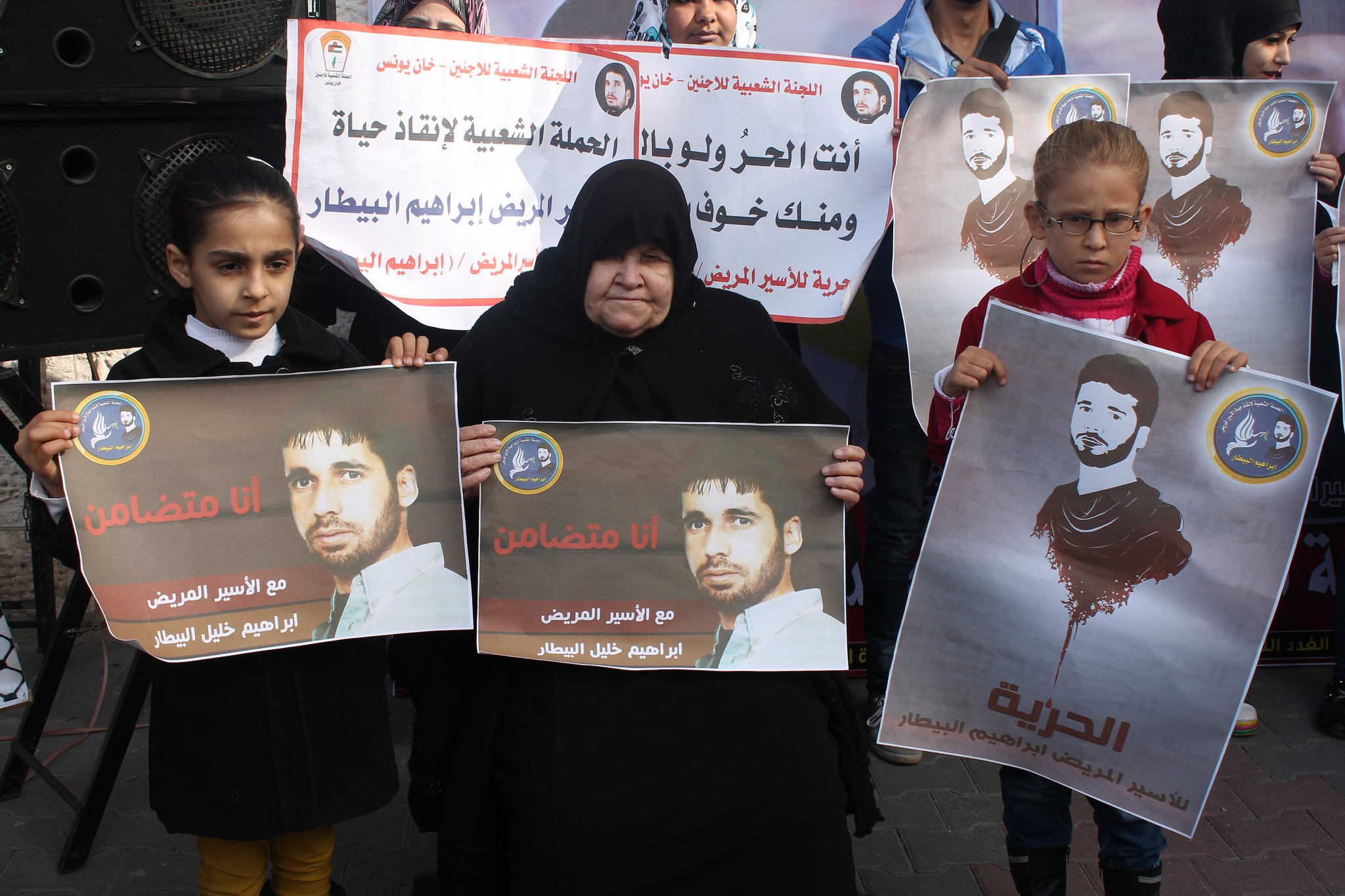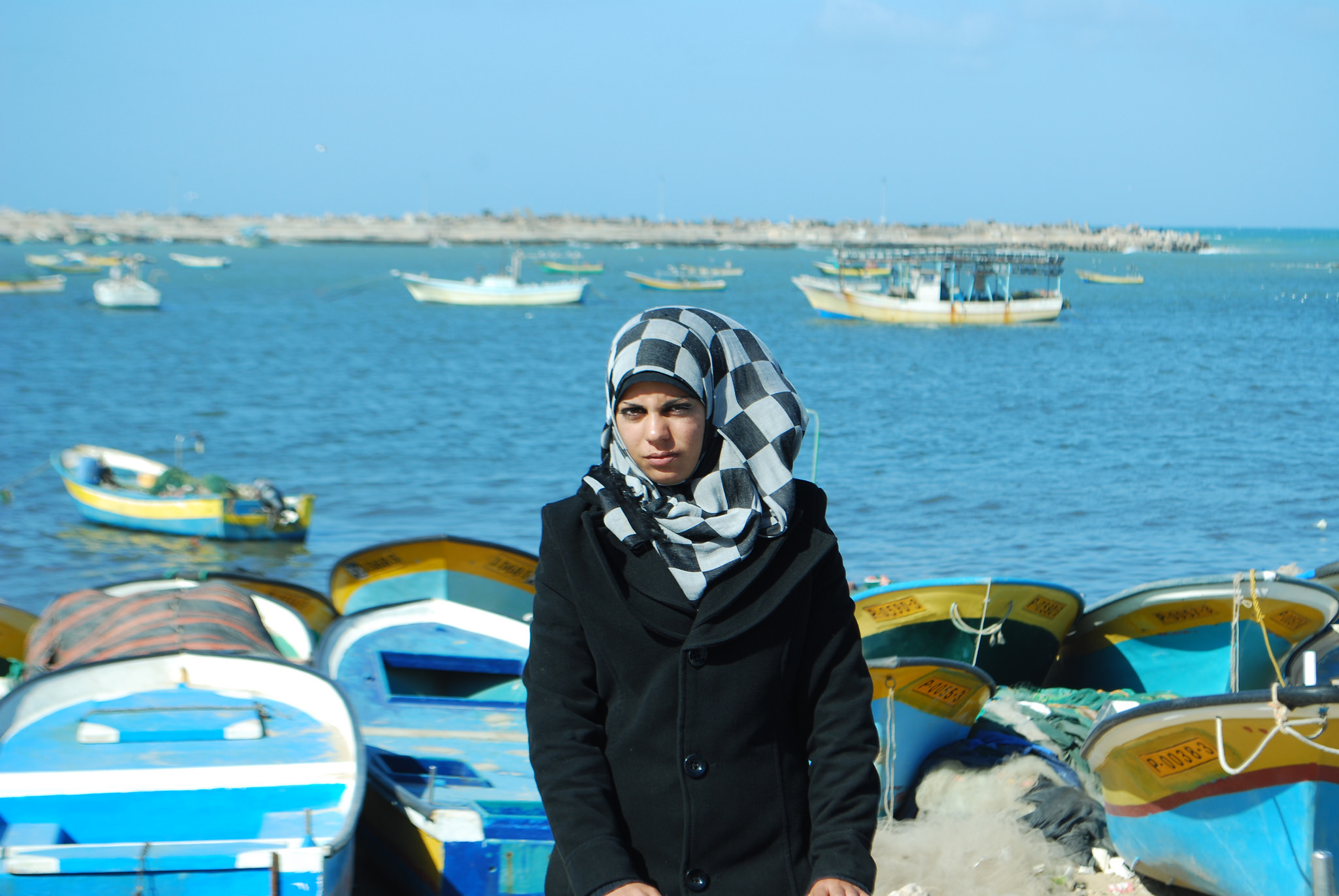-
Israeli gunfire and tear gas injure five Palestinians at a protest north of Gaza
10th February 2014 | International Solidarity Movement, Rosa Schiano | Gaza, Occupied Palestine On Friday, 7th February, hundreds of Palestinian youth joined a weekly demonstration of popular resistance along the separation barrier east of Jabaliya, in the northern Gaza Strip. Aware of attacks by the Israeli army, many were equipped with onions, water and yeast to relieve […]
-
Gaza rallies in support of critically ill prisoner
9th February 2014 | The Electronic Intifada, Joe Catron | Gaza City, Occupied Palestine Sit-ins to support Palestinian prisoners — held every week since 1995 in the courtyard of the International Committee of the Red Cross’ Gaza office — have recently been followed by rallies outside for Ibrahim Bitar, a sick detainee in Israel’s Nafha prison. “We’ve garnered internal support for my […]
-
Madleen Kolab, Gaza’s only fisherwoman
9th February 2014 | International Solidarity Movement, Charlie Andreasson | Gaza, Occupied Palestine I have seen her standing there more then once, at the edge of the port, looking out over the boats in the harbor and then towards the horizon. And for a short second, I have seen myself, when as a child I took […]
Action Alert An Nabi Saleh Apartheid Wall Arrests BDS Bethlehem Bil'in Cast Lead Demonstration Denial of Entry Ethnic Cleansing Farmers Gaza Global Actions Hebron House Demolition International law Israeli Army Jerusalem Live Ammunition Nablus Ni'lin Prisoner Ramallah Rubber-coated steel bullets Settlement Settlers Settler violence Tear-Gas Canister Video



